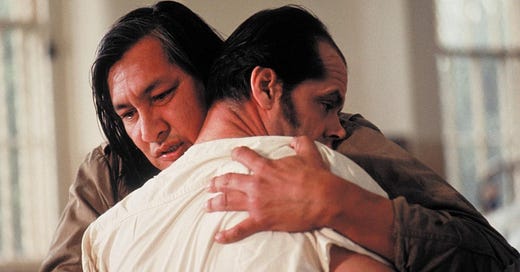The treatment and why you need it
A treatment is many different things depending on who you talk to. Essentially, always ask what the producer's understanding/need/want is - and then deliver on that.
Some people don’t do them - they prefer “going with the flow” of a first draft. If you’re writing a spec, be my guest and do as you damn well please (although, personally, I consider that foolish). But if you’re commissioned, you definitely do not want to head into the script stage without a treatment. A treatment is an absolute must.
Allow me to share a little story from my first paid gig. The producer had loved my exposé and that led to me getting hired. That same producer then just shrugged off the idea of a treatment - she simply didn’t care and allowed me to take off and eventually return with a finished first draft. I was overjoyed as I felt that there was a producer who trusted me - and so I went off and wrote a first draft I absolutely loved … we finally had a shooting script many months later - I think it was the eleventh draft. Perceived trust and freedom sound glorious - but what you actually want and need is, first and foremost, clarity.
A treatment is assurance. For your employers, a treatment is an important check mark, it gives them the sense of security they need, it tells them that everything is going in the planned direction. For yourself, a treatment is just as important. From a craft point of view, it allows you to structure your work with guiding posts. It allows you to see the forest before losing yourself in the beauty and the density of the trees. From an employment point of view a treatment saves you work, pure and simple. Without a treatment, you'll spend months on a script that may turn into something completely different from what your employers expect - and you’ll end up going back to square one (unless, and that’s the more probable option, you’re fired).
Now what the hell is a treatment, you wonder? Truth is - there are variations (in page length and content) depending on where you look - and that’s because there are different countries, cultures, systems and people. Here are the main forms:
Short treatment (up to 15 pages) - this is basically a selling paper, a proposal in prose - giving the reader the story with all major plots points and characters.
Presentation treatment (up to 25 pages) - goes into more detail than the above, may also use bits of dialogue to highlight elements, generate excitement.
Scenic treatment (up to 40 pages) - delivers a scene-by-scene layout of the movie - every scene still told in prose form.
Again - don’t drive yourself nuts. As mentioned above, if you work on a spec - just choose what works for you and if you’re employed, ask them what they want and then deliver exactly that.
A final word for those who say, "I don't write treatments because they limit my creativity." That, I’d say, is how only an amateur would argue. The fact of the matter is - a treatment is there to help you, not hinder you on your path to a great script. A treatment doesn’t lock you in, it guides you. And, the beauty is, a treatment is NOT WRITTEN IN STONE. Creativity happens as you take it from treatment to script - you’ll discover new things along the way and those flashes of movie magic will happen because of the treatment, not despite of it.







